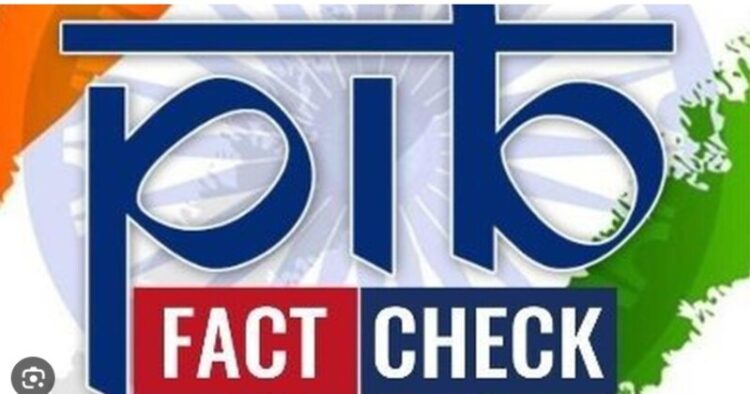The Ministry of Electronics and Information Technology (MeitY) has formally notified the Press Information Bureau’s (PIB) Fact Check Unit (FCU) as the central government’s official fact-checking body under the Information Technology (Intermediary Guidelines and Digital Media Ethics Code) Rules, 2021. The move, announced on Wednesday, March 20, comes amidst mounting legal challenges and concerns over its potential impact on freedom of speech and government overreach.
The notification designates the Fact Check Unit under the PIB of the Ministry of Information and Broadcasting as the union government’s fact-checking unit for vetting online content related to the business of the central government. This decision follows recent legal battles surrounding the establishment of the FCU and the interpretation of Rule 3(1)(b)(v) of the IT Rules, which empowers the FCU to identify “fake or false or misleading” online content pertaining to the central government.
Centre notifies Fact Check Unit under PIB of Ministry of Information and Broadcasting as the fact check unit of the Central government pic.twitter.com/w2eqNd0k7R
— ANI (@ANI) March 20, 2024
Legal challenges to the FCU began in April 2023, when certain amendments to the IT Rules were promulgated by the Union government. These amendments included provisions for the establishment of an FCU to identify and address misinformation related to the union government’s business. Subsequently, satirist Kunal Kamra, the Editors Guild of India, and the Association of Indian Magazines filed petitions in the Bombay High Court, contesting the constitutionality of the FCU and its potential impact on freedom of speech.
The Bombay High Court delivered a split verdict on January 31, with one judge striking down the FCU amendment, citing concerns of censorship, while another upheld it, arguing that it did not infringe upon freedom of speech. The case was then referred to a third judge, who is yet to decide on the matter. However, on March 11, Justice AS Chandurkar rejected pleas seeking a stay on the setting up of the FCU, stating that any action taken post-notification would be subject to the validity of Rule 3(1)(b)(v).
According to the PIB website, on November 29, 2019, it was announced that the FCU will be headed by a senior officer of the Indian Information Service (IIS) and will operate under the supervision of the Principal Director General of PIB. The unit’s role is to verify online content related to the central government’s business.
Senior advocate Gopal Sankaranarayanan raised concerns that the government’s decision violates the Model Code of Conduct (MCC), which prohibits the misuse of official mass media for partisan coverage of political news during the election period. Sankaranarayanan highlighted that the FCU, activated under the Information Technology (Intermediary Guidelines and Digital Media Ethics Code) Rules, allows the government to label statements as “fake or false or misleading,” potentially influencing public opinion.
However, Suhaan Mukerji, a partner at PLR Chambers, disagreed with this interpretation. Mukerji argued that the FCU notification does not directly influence voters’ behaviour and therefore does not violate the MCC’s restrictions on partisan coverage. He emphasised that the government’s intention to establish the FCU had been publicly known for over a year, and the notification timing was due to legal constraints.
Chapter VII of the MCC explicitly requires the party in power to avoid the misuse of official mass media during the election period. The controversy surrounding the FCU notification raises questions about its potential impact on the electoral process and the balance between government oversight and freedom of speech.




















Comments